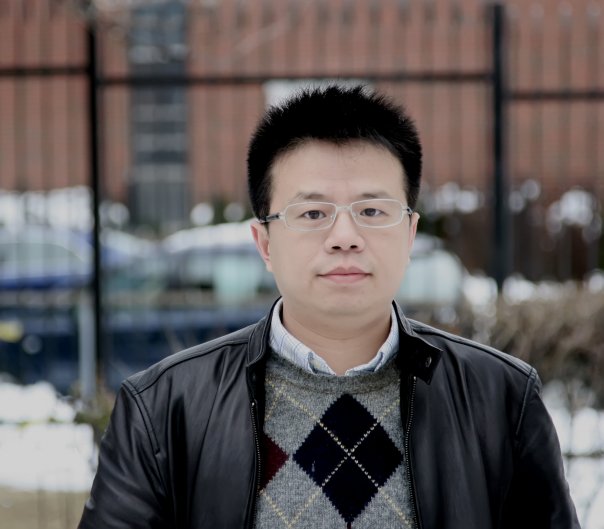Earlier this summer Samsung Electronics Co.005930.SE -0.49% published a sustainability repo

rt entitled “Global Harmony” in which it claimed it found no instances of child labor after inspecting working conditions at 100 of its suppliers.
Around the time the report was made public, activist organization China Labor Watch initiated an undercover investigation in one of Samsung’s supplier factories, and its investigator reported finding five underage workers of 16 or younger in the first three days of his being there, with more underage workers counted in subsequent days.
China Labor Watch then issued its own report on conditions at the plant, garnering a lot of attention, giving Samsung a reputational black eye and forcing the company to do an about-face and admit that–after completing the third of three audits on June 25 in which it found no evidence of child labor–another audit four days later found evidence of child labor.
Samsung then temporarily suspended its business with the factory. A spokeswoman emailed Risk & Compliance Journal to say the company would “take appropriate measures in accordance with our zero tolerance policy on child labor once the final outcome of the Chinese authorities’ investigation is released.” Earlier this month, Samsung said it would cut by 30% the orders it gets from the factory cited in the China Labor Watch report.
China Labor Watch does not just focus on Samsung. Since 2011 it has issued reports that spotlighted labor abuses at suppliers working with companies Mattel Inc., Apple Inc., Hewlett-Packard Co., Koninklijke Philips N.V. and Target Corp.
“Through effective monitoring we expose and increase transparency and hold a company to its ethical standards,” Li Qiang, executive director of China Labor Watch, said through an interpreter. “They’ll start self-regulating when they feel like somebody is watching or there is a potential they might be exposed.”
In the case of Samsung, the spokeswoman said since the end of 2012 it has demanded of its suppliers that they adopt a new hiring process to strengthen identity verification. Measures include face-to-face interviews with candidates before hiring, the use of an electronic scanner to detect fake IDs and distribution of new supplier guidelines setting forth Samsung’s commitment to preventing child labor.
“In addition to these measures, a facial recognition system was also introduced in April 2014,” she said. The company announced a child labor prohibition policy in China on June 27, a policy it said it co-developed with the Centre for Child Rights and Corporate Social Responsibility in China, which is owned by Save the Children Sweden, the spokeswoman said. China Labor Watch calls Samsung’s monitoring systems “ineffective.”
Mr. Li said a number of factors create the environment in which Samsung and other big companies can skirt local labor laws without fear of serious and meaningful consequences. One is the tolerance of local government toward factories that provide money and jobs to the local economy, which he said leads to cases where companies–even if they have these illegal violations—“don’t necessarily have to follow the law, don’t have to treat the law seriously.”
He also blamed the companies in their never-ending quest for higher profits, saying these are pursued at the expense of labor violations. By pitting one supplier against another, with the lowest bidder winning the contract, Mr. Li said it forces the suppliers—many of whom operate on razor-thin margins—to cut in the one area they can: their workers. Suppliers are “restrictive in what they can cost down when it comes to materials, land and equipment so they have to cost down labor costs,” he said.
In many instances, the big branded companies also decide what types of machines and equipment suppliers need and from where they can buy them, further limiting their abilities to cut costs other than labor. “In this way the only thing left is cutting labor costs and they do this by ordering more overtime and finding ways to cut pay, all of these other violations that we see in our investigations,” Mr. Li said. “The real problem lies with the branded companies, not so much with the factories. The violations are the responsibility of the branded companies.”
China Labor Watch further cited problems with the auditing process, saying audit reports are merely window dressing for companies, something to show investors and Wall Street. “A lot of these auditing processes are really corrupt,” Mr. Li said. “There’s the auditor that takes a bribe from the factory to write the report in a way that is more beneficial to the factory. We have run across this sort of corruption before in our investigations.”
Factories in China may also pay to see the calendar of scheduled audits, so they can be prepared when their audit date arrives and not be caught by these so-called “surprise” audits, Mr. Li said. “This auditing system has been around for 15 years or more but really has very little benefit to the workers,” he said. “But there is a lot of interest in auditing from the corporate social responsibility industry, they make a lot of money doing audits.”
Finally, there are the consumers who demand inexpensive products and will make purchase choices based sometimes on a price difference of pennies. How complicit are they in this system? “The consumers don’t have any responsibility to what is happening in the factories,” Mr. Chang said. “They aren’t the ones in the system who have the greatest interest. The ones with the most responsibility are the ones gaining the most, the large branded companies. They have enough money to pay for improved wages and other improvements. It’s not necessary for consumers to pay more at the storefront.”
Where consumers can play a role, he said, is by exerting influence through contacting companies, signing petitions and joining public campaigns that put pressure on branded companies. “They do listen when consumers act and make an issue of something,” Mr. Li said.